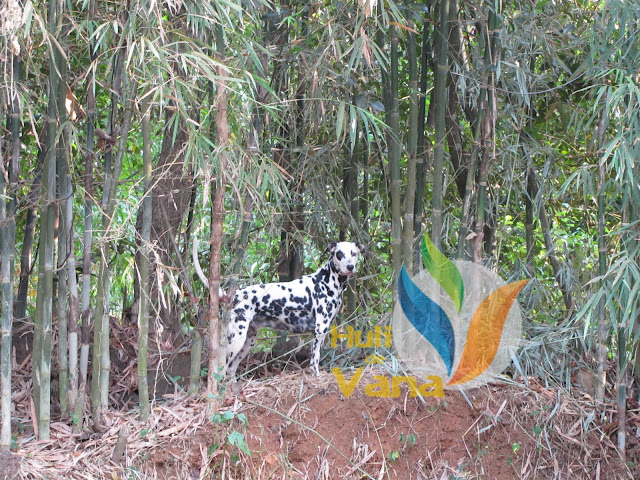There seems to be strange new craze over kokum.......Would you believe it....Kokum is supposed to have anti-obesity, anti-inflammatory,anti-bacterial and anti-carcinogenic, anti-oxidant, cholesterol lowering properties and what not. And Kokum – butter, the funny looking waxy stuff which granny used to advise us to rub over cracked heels has been elevated to a new star for its anti-wrinkle properties and is the new beauty aid in some celebrity kits!
Ha! And this stuff has been around for ages. But
frankly, when we were in Mumbai (and I was unaware of all the medicinal
benefits of kokum) I hardly ever used it. An occasional Sol-kadhi, or a
dark dry lassoon chatni... or if I run out of Tamarind, these were the only
times that I used Kokum.
In our first year at the farm, in fact our first week, I had
asked our farm-hand to ‘introduce’ us to all the trees, or rather introduce the
trees to us because apart from identifying a few common fruit trees, we were
clueless about the biodiversity on our farm. He had mentioned the name ‘Birund’
(the Konkani word for Kokum) as he pointed out to a clump of nondescript
looking trees in an overgrown corner of the farm. There were no fruits on the
tree.
About half a year later, the trees started bearing fruit. Green
plum shaped fruits started appearing along the slender branches and soon
started turning a brilliant red.
Our first harvest was a couple of huge buckets
full. And I had no idea what to do with it!
So I called up a couple of friends who had farms in the Konkan region, got a detailed description of the traditional method of processing and got down to work.
So I called up a couple of friends who had farms in the Konkan region, got a detailed description of the traditional method of processing and got down to work.
Cut open the fruit, scoop out the pulp and seeds into one
tub, rind into another, throw the stalks away.
Squeeze the seeds and pulp through a colander to extract all
the juice.
Keep the juice aside.
When the sun goes down, put all the semi-dried rind back into this juice
and let it soak overnight.
Repeat this process for 4 days. The juice keeps getting
absorbed into the rind, which gets darker and drier and finally on the fourth
day, there is no juice left to be drained out.
Another day in the sun and the rind gets the characteristic
colour and texture of the kokum that most of us are familiar with. This is the traditional way of processing and
the only way to ensure that all the goodness of the juice is retained in the
rind.
The seeds are sun dried separately until their shell, becomes
crisp and breaks open easily. The seed kernel needs to be removed and
collected. These kernels contain the precious kokum butter. The seeds are
ground to a fine paste with water and then this milky liquid is boiled. The fat
floats on the surface and when cooled
can be skimmed off - and this, is the
wonderful kokum butter. Delicately coloured and melts on touching, it can
replace your moisturisers and lotions if you wish!
Our front yard is turned into a kokum processing unit and
our drying tables are laden with the richly coloured fruits in varying shades
of red.
And a new favourite accompaniment to our meal is a warm Kokum clear soup with just a dash of our home grown pepper!
And a new favourite accompaniment to our meal is a warm Kokum clear soup with just a dash of our home grown pepper!









